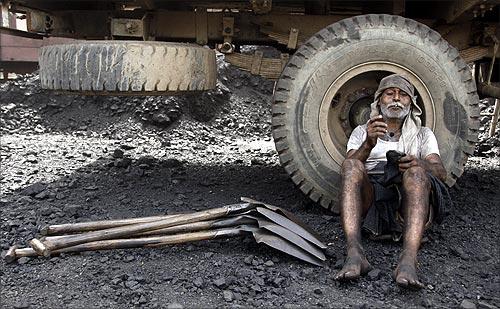
AMRIT PANDURANGI
Senior Director, Deloitte Touche Tohmatsu India Private Limited
The decision to reverse coal block allocation should be based on the evidence related to the process actually carried out and not linked to the correctness of the policy at that time"
Before taking a decision on what the government should do, it is important to understand and accept a basic principle of giving investors, both international and domestic, consistent and definitive directions and policies. Any action, however correct or reasonable, that results in increasing uncertainty for investors should be carefully evaluated for its economic implications first.
In the case of decisions connected to the coal allocations, unfortunately, the process and quality of evaluation have been mixed up with larger and more important public policy issues.
The larger public policy issue here is: should the government be looking at making money out of coal allocations and allowing such costs to be passed through as input costs for power generation or steel manufacture, or should it be more concerned about the competitiveness of the economy through lower infrastructure costs?
As told to Gyan Verma
...
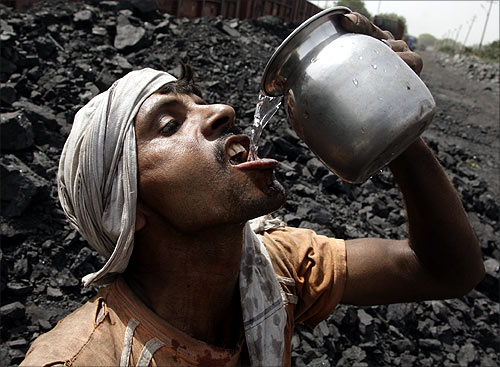
If one were to argue that competitiveness of the economy is far more important than the government making money from coal allocations, then the loss to the exchequer is not the main point of the debate. Unfortunately, the government often does not make its objectives very clear and upfront.
Similarly, the debate over whether an auction process should be employed or a normal bidding process with clearly-defined evaluation criteria and a high-quality evaluation exercise is almost irrelevant.
There is no evidence to suggest anywhere in the world that an auction process is better than a properly conducted bidding process. Nor is the auction process so simple and easy to understand that collusion can be prevented.
The decision to reverse coal block allocations should, therefore, be based on the evidence related to the process actually carried out and not linked to the correctness of the policy at that time.
...
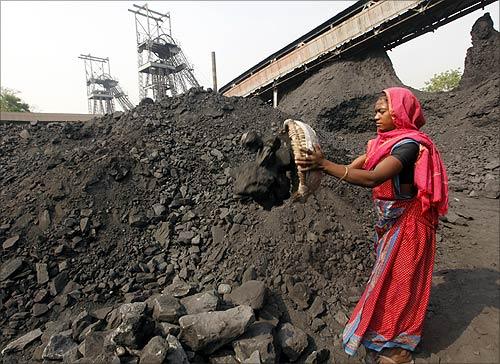
It is important to review the decisions by answering three important questions: (i) whether the criteria laid down was in line with the policy at that time; (ii) whether the process followed was as laid down at that point in time #8743 (iii) whether the quality of the process (including verification of the data submitted) was of a high order. If a review now finds that any one or more of these three aspects were not properly carried out for any specific allocations, then it is reasonable to expect a reversal of the decision for that specific allocation.
However, if all these three aspects were properly carried out in respect of any specific application, then it would be inappropriate to reverse the decision.
It is also important to consider the post-award actions that have been taken by allottee companies as compared to actions that were committed to be taken and analyse the reasons for the differences.
If there are big differences (that is, lack of any significant progress) and if the reasons for the differences are primarily due to the private sector applicant, then the decision to terminate allocation can be taken (this is not a reversal of decision but a separate and a second decision in line with the terms of allotment).
However, if there has been progress as expected or the reasons for lack of progress are primarily due to the various public agencies, then it would be inappropriate to reverse the award decision.
...

Public procurement processes in recent times have also seen instances of public agencies playing "safe" and sticking to rigid (and sometimes obviously inappropriate) procedures even when they realise that the original procedures are resulting in elimination of suitable and highly experienced corporations.
This has been noticed in a few public-private partnership (PPP) transactions where procedures prescribe very specific formats for information submission. Lapses in formatting or such minor errors have to be considered as such and cannot be reasons for elimination.
It is hard to understand what the government is trying to achieve in such cases - transparency resulting in inappropriate decisions? It is high time we gave ourselves higher marks for our own judgement, if the intention can be proven to be bonafide.
In the end, therefore, scrapping coal block allocations should be applicable only in those cases that do not satisfy the key tests above. The default option should be not to scrap till there is adequate evidence of wrongdoing in specific cases.
These views are personal.
...
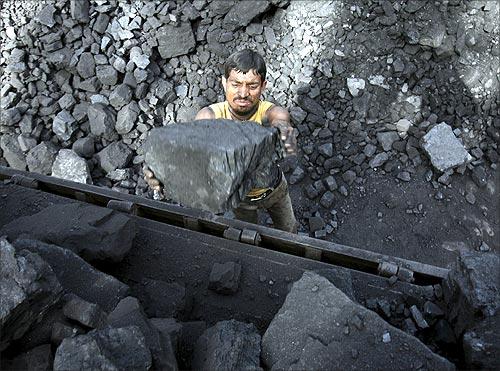
PRAKASH JAVADEKAR
Member of Parliament & BJP spokesperson
"There were 15 applications for each coal block during the allocation process, so what criteria were followed for selecting the company that was allocated coal blocks?"
The Bharatiya Janata Party (BJP) leadership strongly believes that the United Progressive Alliance (UPA) is one of the most corrupt governments in India's history. The involvement of UPA ministers in the recent coal block allocation scam that caused an estimated loss of Rs 1.86 lakh crore and 2G spectrum allocation scam with a loss figure of Rs 1.76 lakh crore are just two glaring examples of this.
Even though BJP talked about scams in spectrum allocation for a very long time and our MP Hansraj Ahir was trying to unravel the coal block allocation scam nobody was ready to believe it and the government also didn't pay much attention to our demands. However, the allegations proved correct when the Comptroller and Auditor General (CAG) also found the same irregularities in its investigations in both the cases.
Now, going by the example of the 2G spectrum allocation scam, the BJP has demanded de-allocation of all the coal blocks and the introduction of competitive bidding as decided by the UPA government in 2004. The government has so far not agreed to de-allocation of all the coal blocks because of its vested interests.
...

One of our main allegations is that there were 15 applications for each coal block during the allocation process, so what criteria were followed for selecting the company that was allocated coal blocks?
The UPA members indulged in favouritism and allocated coal blocks to people and companies of its choice. Allegations of misrepresentation and irregularities are also being investigated by the Central Bureau of Investigation (CBI).
Now, the UPA government issued telecom licences for 2G spectrum but a Supreme Court order had those licences cancelled and the apex court has also stated that those licences should be auctioned.
Just as there was a theory of zero loss propagated by UPA minister Kapil Sibal when the 2G spectrum scam broke, other UPA ministers are now saying there is no loss in the coal block allocation scam.
However, for the auction of telecom spectrum, the government has now fixed a reserve price of Rs 14,000 crore per licence. If we calculate even at Rs 14,000 crore for nine all-India licences, the revenue generated works out to about Rs 126,000 crore.
...
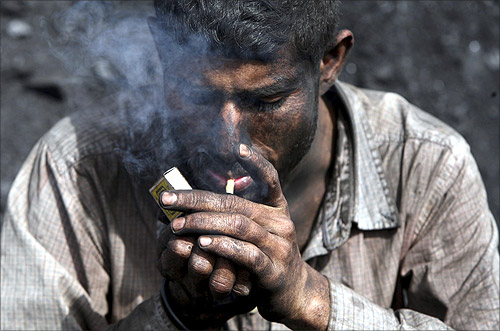
If the bidding goes beyond the reserve price then we are very close to the loss figure quoted in the CAG report. So, there is an example and the government should follow it for competitive bidding in coal block allocations as well.
The government has accused the BJP of stalling the monsoon session of Parliament but yet again, if we talk about the winter session of 2010, the biggest gain that came out was the constitution of a Joint Parliamentary Committee (JPC).
The government was in no mood to concede to our demand in the winter session but it had to agree to it before the Budget session. Similarly, on our insistence if these coal block allocations are cancelled and they are auctioned, the country will benefit.
Above all, it was not only the BJP that was responsible for stalling proceedings in the Parliament. Most of the opposition parties, including the CPI(M), CPI, AIADMK and BJD, were demanding the same thing as we were.
...
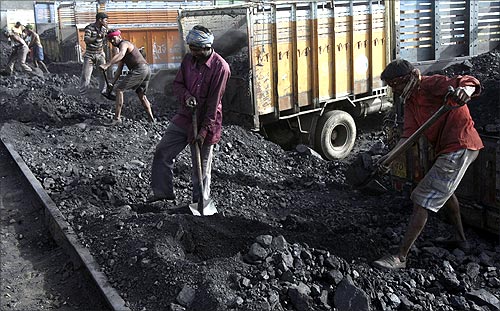
Even the UPA ally, the Samajwadi Party, wants coal blocks to be de-allocated. It is true that the BJP has asked Prime Minister Manmohan Singh to resign because he was the coal minister when these allocations were made but a discussion in Parliament could have taken place if the government had agreed to two of our preconditions - de-allocate coal blocks and set up an independent inquiry.
The fight that started in Parliament will now be taken to the streets. We are going to hold public meetings all over the country so that people are aware of the scams in which this government is involved.
The CBI is investigating the case and we believe that the agency has some good officers capable of conducting a competent investigation. But our only worry is that the progress of the investigations should not be monitored by the government. That is why the BJP has demanded that a sitting judge of the Supreme Court should monitor the progress in the cases.